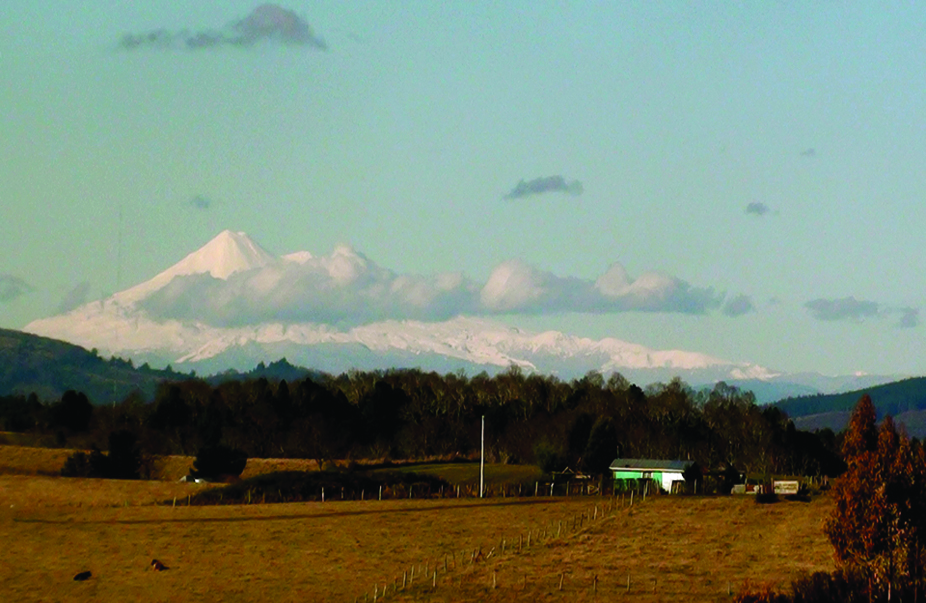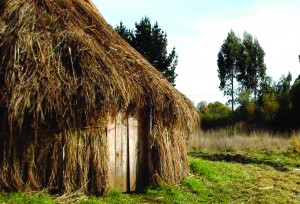
Culbertson’s Project Odakniwa hopes to empower indigenous Chileans
Wyatt Smith
Features Editor
For 2012 Wooster alumnus Chris Culbertson, it’s hard to pin down the exact moment of his non-profit’s creation. Rather, he describes the development of Project Odakniwa as a lifelong process filled with self-discovery.

Culbertson was born in southern Chile and was adopted by a couple in the U.S. when he was six months old. After being told about his heritage, he began to question his cultural identity. Culbertson first visited Chile when he was sixteen, but met his birth mother during college. It was through her and the rest of his biological family that Culbertson discovered his Mapuche heritage, an indigenous ethnic group in southern Chile.
Culbertson continued to delve deeper into his connection with the Mapuche, even using his senior Independent Study to further explore his complicated identity.
“I’m as American as they come,” says Culbertson, “… but when it comes down to it, there really aren’t that many differences between me and my [birth] family.”
While talking to one of his cousins, the idea that would eventually become Project Odakniwa emerged. His cousin proposed that they try to bring more Americans to Chile so that they could experience Chilean culture first-hand. He hoped these people would see how Americans and the Mapuche are not so different after all.
Culbertson replied, “I think I can help you do that.”
Project Odakniwa works to support indigenous communities in southern Chile. The group’s initiatives include sustainable agriculture and technology, a language preservation program and the promotion of local artisans.
One more of the organization’s specific plans is to construct a community center. According to Culbertson, it will be shaped like a traditional indigenous dwelling, but feature modern aspects such as solar panels.
“It’s a merger of the two worlds,” he notes.
“What we’re doing is intensely historic,” says Culbertson, “because it’s never been done before the way we want to do it.”
Culbertson is planning on devoting the next five to ten years of his life to this project; as evidenced by his one-way plane ticket to Chile. However, a big goal for him is keeping his involvement temporary.
“There’s a few younger people in the community who are interested who would hopefully be able to take over the reins so that I could come back to the U.S.” Culbertson says. “The idea is to empower the community so that they can do it themselves.”
Of course, Culbertson doesn’t manage all of this by himself. Besides very supportive parents (both biological and adoptive), Culbertson is aided by several individuals and organizations, including his elementary school, which is holding bake sales to help fund the project.
Project Odakniwa might also benefit greatly from grants, such as sustainability grants offered by the non-profit Terra Viva, which they are currently applying for.
Since the Project has yet to finalize its non-profit 501(c)3 status, it needs a fiscal sponsor to receive donations. Appropriate Technology Collaborative, a non-profit based in Michigan, currently fills that role. If people donate to ATC and specify that they want their money to go to Project Odakniwa, 100 percent of it will go straight to Culbertson’s organization.
Culbertson even visited Wooster to talk to the Center for Diversity and Global Engagement about the possibility of sending student groups down to Chile to aid Project Odakniwa, much the same way the Akaa Project is currently set up. The exact nature of the College’s relationship with the project is still being figured out, but Culbertson is very optimistic.
But perhaps Culbertson’s greatest help comes in the form of Sophomore Heidi Strike. Strike met Culbertson in a class last spring, and first learned about his story during his Independent Study presentation.
“It kind of just snowballed from there,” says Strike, “we talked a bit more about his project and what he’s doing with it, where it was going. I was so excited.”
When Culbertson asked if she wanted to join the project, Strike enthusiastically agreed. Since then, she’s been helping Culbertson with all the paperwork and complications that come with the creation of a non-profit.
Formally, Strike is the Volunteer Coordinator for Project Odakniwa. She’s central to the Project’s attempt to send Wooster students on a volunteer trip to Chile.
“We have everything set up,” says Strike, “so now we’re just waiting for the funds, the volunteers.”
